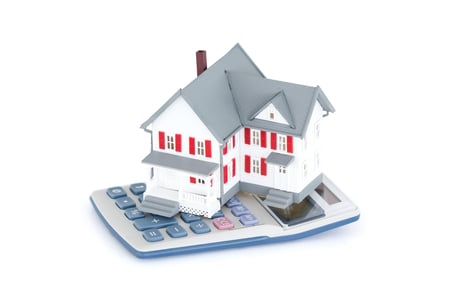I have a rental property. Can I write off business expenses/losses against my personal income?
We get many questions surrounding rental property, such as, “How can I report my rental property as a business so I can write off my losses against my personal 1040 adjusted gross income?”
Several factors from the IRS determine whether you can claim your rental property as a Schedule C business or Schedule E. The main factor the IRS uses to determine if your rental qualifies as a “business” is the substantial services you are providing to your rental guests and property on a regular basis.

Understanding Passive Activity
A passive rental generally occurs when someone owns a rental that is leased for more than seven days at a time and/or operations are externally performed by a property manager. These are the two most common tests used, though not exclusive when the IRS is scrutinizing a taxpayer's return.
Passive Income from Your Rental
In general, most rental profit and loss are considered passive and a Schedule E is filed. If your rental shows a taxable loss, a passive taxpayer can only deduct this passive loss against any passive taxable gains—not against W2 wages or investment income. Therefore, most taxpayers claim their rental as a Schedule C business so the losses may be taken against their W2 income.
What does the IRS consider for my rental to qualify as a Schedule C business?
The IRS will look at whether the property you are renting “is a business” by determining if “you provide substantial services in conjunction with (your short-term) rental.”
Insubstantial Services
The following activities are considered insubstantial under the tax code to be considered in the “business” of short-term rentals. If you are mainly performing the following insubstantial services then you will likely file this rental under a Schedule E on your personal 1040 tax return:
- Providing basic utilities, such as Heating, Lighting, Internet, and Cable TV;
- Basic cleaning of common areas, including mowing of grounds;
- Trash services;
- Paying bills, Accounting for income and expenses, and;
- Doing your own Repairs and Maintenance of property.
Substantial Services
The following activities can potentially be considered substantial services whereby the IRS may qualify your short-term rental as a “business” and allow you to report this rental activity under a Schedule C when filing your personal 1040 tax return.
When considering if “substantial services” are being provided, consider an example of staying in a hotel and all the ongoing services provided during a typical hotel stay. The IRS will want to determine if you are providing the same “substantial services” to your rental guests, such as:
- Cleaning Services - You are manually performing regular maid services to guests;
- Changing linens for guests during rental and between check-in and check-out.
- Providing guest tours and outings; Concierge-type services.
- Meals – For example, you physically provide breakfast to guests every morning.
- Transportation – You are picking up and dropping off guests yourself, and;
- Other services similarly a hotel would provide its guests.

What if You Provide Services to Your Guests?
Let’s say your rental property is a small bed and breakfast, and the average rental stay is seven days or less. You provide your guests with substantial services during their stay. If you are providing these hotel-type services, the good news is that the tax code is on your side.
Providing substantial services to your guests most likely allows you to treat your short-term rental as a Schedule C business. In this scenario, your taxable rental profits would be subject to self-employment tax; your taxable rental losses allow you to offset your W2 wage income, and; your taxable income could be lower. If you are very profitable, you may want to consider filing to reduce your overall tax due.
If guests are renting longer than seven days on average (or monthly, annually), or you just rent a room in your main residence, the IRS has in many cases deemed these activities as insubstantial and would consider these a passive activity filing a Schedule E. In this case, your rental would be considered passive and only offsetting other passive profits or losses when filing your 1040 personal tax return.
Ok, so...can I claim my rental property as a business for tax purposes?
From the casual renter to the owner of multiple rental units, most taxpayers are sadly disappointed that their rental ownership is not a Schedule C deduction windfall unless they can prove they provide substantial services to their rental guests. The rules are complex, and the bar is set high for those seeking write-off opportunities.
Make sure to stay on the right side of the IRS if you own rental property
Many factors go into whether the IRS allows a rental property owner to claim their rental activity as an ‘active business. Making sure to stay on the right side of the IRS will avoid a potential audit and possible IRS penalties and interest if the IRS deemed your rental passive instead of active.
Our founder owns over 15 rentals, and our team of professionals helps many valued clients today with ongoing accounting and tax services in order to maximize their short-term rental profits and losses.
Contact us today to learn more about your rental property(s) and how we can help.




